Vegan Globetrotter is supported by our audience. When you purchase through one of our links, we may earn a small affiliate commission. As an Amazon Associate I earn from qualifying purchases. Your cost is not affected.
==================
The Best Plant-Based Protein Foods
People are becoming much more interested in plant-based protein foods, vegan diets, etc. Moving away from animal products is much easier now. It’s because there are more healthful and nutritious plant-based meal options available.
You can practice veganism for a variety of reasons, including health, animal welfare, and religious convictions. In 2016, the Academy of Nutrition and Dietetics said that a vegetarian or vegan diet could meet all of an adult’s, child’s, pregnant woman’s, and breastfeeding mother’s nutritional needs.
Those who do not consume meat or animal products, on the other hand, may have a harder difficulty getting enough protein, vitamins, and minerals. Protein, calcium, iron, and vitamin B-12, which are obtained from animal products by those who eat an omnivorous diet, must be prepared ahead of time.
How Much Protein Do You Need
Protein is a necessary part of your body. Protein should be consumed at a rate of 0.36 grams per pound of body weight per day for healthy people. This translates to 54 grams for a 150-pound adult. But that’s just the start. If you’re pregnant or nursing, or if you’re an athlete, you’ll need more.
It also depends on a number of factors, including your level of exercise and muscle mass. Most people are not compelled to keep meticulous records or measurements of how much protein they take on a daily basis. If you’re frequently weak or exhausted, or if you get hungry quickly after eating, you’re not getting enough. A skilled dietician can help you make dietary changes to ensure that your body is properly fueled.
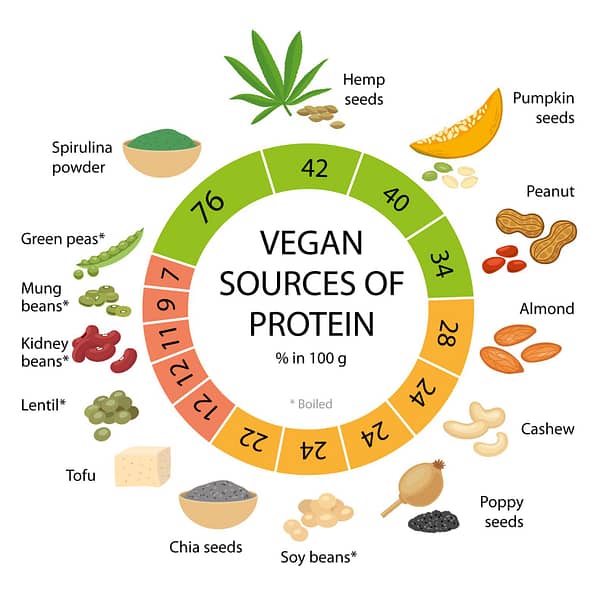
Fifteen Best Plant-Based Protein Foods
Plant-based meals can supply a lot of protein and other nutrients while having fewer calories than animal-based foods. Soybeans and quinoa, for example, are complete proteins, containing all nine essential amino acids required by humans. Others are low in certain amino acids, necessitating a varied diet. Plant-based protein meals with a high protein concentration per serving include:
Tofu, Tempeh, and Edamame
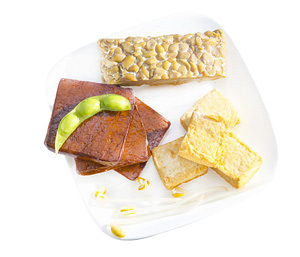
tofu, tempeh, edamame
Soybeans are one of the highest sources of plant-based protein. Soy protein content varies depending on how it is prepared. Tofu absorbs the flavor of the dish in which it is cooked, giving it an unique addition to any meal. Tofu can be used as a meat substitute in a favorite sandwich or soup. Some cuisines, such as kung pao chicken and sweet and sour chicken, employ it as a meat substitute. These soy products are also high in calcium and iron, making them a nutritious dairy substitute.
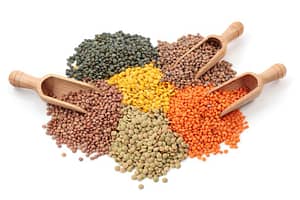
lentils
Lentils
Whether green or red, include vital nutrients such as potassium and iron, as well as a high protein and fiber content. They are an excellent source of protein to add to your lunch or dinner routine. Add them to cereals, curries, salads, and stews to improve the protein content.
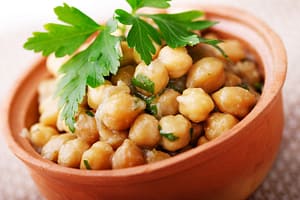
chickpeas (garbanzos)
Chickpeas
Known as a protein powerhouse, Chickpeas might be your favorite source of plant protein. In fact, for every 1/2 cup, they weigh 7.25 grams. Serve chickpeas hot or cold. They also work well in a variety of dishes. When used in stews and curries, or when spiced with paprika and cooked in the oven. They give the dish a richer flavor and texture. On a sandwich, hummus, made from chickpea paste, is a nutritious, protein-rich alternative to butter.
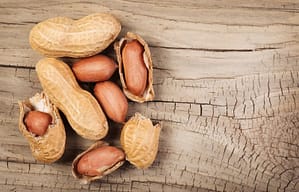
peanuts (groundnuts)
Peanuts
Studies prove that peanuts contain benefits to help heart health and healthy fats. In addition, peanut butter, also exceptionally high in protein, contains 3.6 g per tablespoon. As such, this makes peanut butter sandwiches a nutritious full-protein snack.
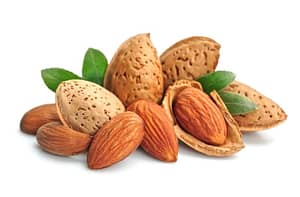
almonds
Almonds
Nutrition analysis of almonds shows 16.5 grams of protein in a 1/2 cup serving. They also contain a lot of vitamin E, which is beneficial to the skin and eyes.

Spirulina Powder
Spirulina
It’s a green or blue alga with 8 grams of protein per 2 tablespoons. Its minerals include iron, B vitamins (but not vitamin B-12), and manganese. Spirulina is available online as a powder or a supplement. It’s delicious in water, smoothies, and fruit juices.
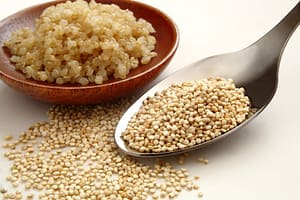
Quinoa
Quinoa
Although it’s a lesser-known grain, Quinoa contains one of the highest levels of plant-based protein. Cooked quinoa contains 8 grams of protein per cup. We often use Quinoa in place of pasta in soups and stews. It can either be served as a side dish or a main course.
Chia Seeds
Chia Seeds are a low-calorie snack strong in fiber and Omega-3 fatty acids, both of which are good for your heart. In addition, Chia seeds are a complete protein source with 2 g of protein per tablespoon. By soaking chia seeds in water or almond milk and then adding them to a smoothie or dusting them on top of plant-based yogurt, you can make a pudding. Chia seeds can be found in a variety of supermarkets, health food stores, and online.
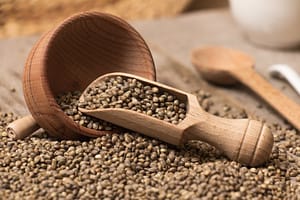
hemp seed
Hemp Seeds
Like chia seeds, hemp seeds provide a complete protein. These seeds contain a protein content of 5 grams per tablespoon. Comparable to chia seeds, use in the same way. Hemp seeds are also available for purchase on the internet.
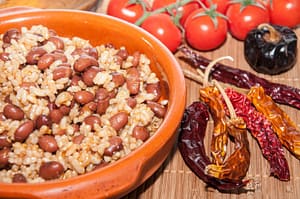
Beans and Rice
Beans With Rice
Rice and beans, on their own, are protein-deficient foods. This traditional dinner may supply 7 g of protein per cup when eaten combined. Serve rice and beans as a side dish. Or, make a delicious, protein-packed entrée by mixing rice, beans, and hummus and spreading it over Ezekiel bread, which is produced from sprouted grains.
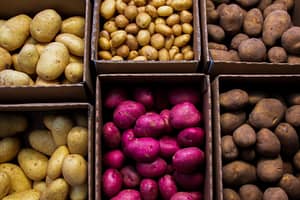
Varieties of Potatoes
Potatoes
Each serving of a big baked potato has 8 grams of protein. Other minerals found in potatoes include potassium and vitamin C. 2 tablespoons of hummus makes a tasty snack that’s healthier than butter-covered potatoes and higher in protein. Hummus has roughly 3 g of protein in two tablespoons.

leafy green vegetables
Protein-Rich Vegetables
Protein may be found in a variety of dark-colored leafy greens and vegetables. These foods alone do not provide enough protein to satisfy daily requirements. Still, a few vegetable snacks can help to boost protein consumption, especially when coupled with other plant-based protein foods. Try a salad with baby greens and quinoa sprinkled on top for a protein-packed supper.
Seitan
The Seitan is a complete protein prepared by removing the starch from wheat flour. Then, the remaining protein, quite flavorless on its own, can be combined with a variety of spices. People with celiac or non-celiac gluten sensitivity should avoid it because of the high wheat content. For others, it might serve as a high-protein, low-fat meat replacement. Also known as gluten, seitan provides a complete protein source with 21 g per 1/3 cup cooked in soy sauce, which is high in the amino acid lysine.
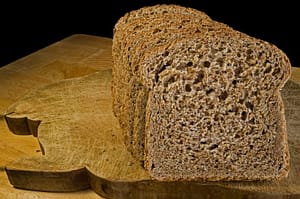
Sprouted Bread
Ezekiel Bread, Sprouted Bread
Traditional bread is nutrient-dense, but Ezekiel bread is nutrient-dense as well. This bread is an excellent option for bread fans who looks for a healthier alternative to sandwiches and toast. Each piece of Ezekiel bread has 4 grams of protein. Toast Ezekiel bread and cover it with peanut or almond butter for even more protein.
Scientific Benefits of Consuming a Natural Plant-Based Protein Foods
Going plant-based is more of an eating philosophy than a specific diet. There’s no need to keep track of calories or worry about hitting daily macronutrient targets. It essentially boils down to consuming more plant-based protein foods (while avoiding animal-based protein foods). Below is the list of scientific benefits of having a plant-based protein diet.
Lowers Your Blood Pressure
According to the Physicians Committee for Responsible Medicine, high blood pressure, or hypertension, can raise the risk of health problems such as heart disease, stroke, and type 2 diabetes. Fortunately, the foods you consume can have an impact. Several studies have indicated that eating a plant-based diet lowers blood pressure, lowering your heart disease and stroke risk.
A meta-analysis published in April 2014 in JAMA Internal Medicine examined data from 39 research and found that vegetarians had lower blood pressure on average than persons who ate omnivorous diets, which included both vegetables and meat. Another study published in the Journal of Hypertension in November 2016 discovered that vegetarians had a 34% reduced chance of getting hypertension than non-vegetarians.
Keeps Your Heart Healthy
Meat includes saturated fat, which can cause cardiac problems if consumed in large amounts. You’ll be doing your ticker a favor if you cut less on meat and consume more plant-based meals. According to research published in the Journal of the American Heart Association in August 2019, eating a plant-based diet can cut the chance of acquiring cardiovascular disease by 16% and dying from it by 31%.
But it’s not just about cutting back on meat; you also need to make sure the plant-based foods you’re eating are nutritious. According to research published in the Journal of the American College of Cardiology in July 2017, eating whole grains, legumes, fruits, vegetables, and healthy oils (such as olive oil) instead of harmful plant foods like refined grains and sugary drinks might increase your risk of heart disease.
Helps Prevent Type 2 Diabetes
There is a well-known relationship between diet and type 2 diabetes. According to the Mayo Clinic, weight is a key risk factor since greater fatty tissue makes cells more insulin resistant. But which diet is better for preventing type 2 diabetes? Studies show that plant-based protein foods provide health advantages. According to research published in PLoS Medicine in June 2016, consuming a plant-based diet rich in high-quality plant foods lowered the incidence of type 2 diabetes by 34%.
According to the American Diabetes Association, this is likely because plants have fewer saturated fats than animal meals, which elevate cholesterol levels and increase your chance of developing type 2 diabetes. Another study published in Diabetes Care indicated that non-vegetarians had a 7.6% incidence of type 2 diabetes, whereas vegans had a 2.9 percent prevalence.
Could Help You Lose Weight
When you switch from meat-heavy to plant-based protein foods, your risk of obesity lowers. In summary, plant-eaters are less likely to gain weight, even if that isn’t necessarily the primary objective. Eating more vegetables can also help you lose weight. According to small research published in March 2017 in Nutrition & Diabetes, 65 overweight persons dropped 9.25 pounds on average after following a whole-food, plant-based diet for a year.
According to data cited in a study published in January 2016 in the Journal of General Internal Medicine, one reason for the weight loss is that whole grains and vegetables have a low glycemic index, which means they’re digested more slowly. Fruit contains antioxidants and fiber, which helps prolong fullness. If you want to lose weight, it’s critical to focus on nutritious, high-quality plant-based protein foods.
Helps You Live Longer
All of the other possible advantages outlined here combine to provide one significant benefit: living longer. According to research published in the Journal of the American Heart Association, a plant-based diet reduces the risk of death from all causes by 25%. Furthermore, sticking to healthful plant-based diets raises the protective levels. According to research published in April 2018 in The Journal of Nutrition, consuming nutritious plant meals instead of bad ones increases the protective layer by 5%.
Researchers awarded various non-animal items a score between 1 and 17 to assess healthy plant diets. Despite being meat-free, less-healthy foods such as soda, cake, and white bread earned a poor score; however, more nutritious plant foods such as whole grains, vegetables, and fruit obtained a better score.
Decreases Your Risk of Cancer
Consuming plant-based protein foods has several health advantages, as we’ve seen, but does it help prevent cancer? According to research, the answer might be yes. According to the American Institute for Cancer Research, eating a diet rich in vegetables, fruit, grains, beans, nuts, seeds, and certain animal foods is the greatest way to receive cancer-protective elements, including fiber, vitamins, minerals, and phytochemicals.
Cancer survivors are in the same boat. According to a review published in 2011 in Cancer Management and Research, the protective benefits are there. However, they’re moderate (lowering the risk of certain cancers by about 10%) and are likely due to the nutrients found in plant foods and that eating this way promotes a healthy weight.
Improves Your Cholesterol
According to a study of 27 research published in The American Journal of Cardiology, switching from an animal-based diet to one predominantly plant-based can decrease LDL (“bad”) cholesterol by 10 to 15%. In contrast, strictly vegan diets can lower LDL cholesterol by 25%.
Minimizes Your Risk of Stroke
If you have high blood pressure, are overweight, have diabetes or heart disease, have high cholesterol, smoke, drink, or take drugs, your risk of stroke increases. As previously stated, following a plant-based diet and making healthy lifestyle choices can eliminate most of those risk factors. After all, it can avoid 50% of all strokes.
Increasing your diet of fruits and vegetables is an easy strategy to lower your risk. According to research published in June 2014 on stroke, individuals who ate the most fruits and vegetables had a 21% reduced risk of stroke than those who ate the least.
Keeps Your Brain Strong
There are several physiological advantages to eating plant-based protein foods, but there are also some potential mental advantages. According to a study of nine research published in Frontiers in Aging Neuroscience in 2017, consuming an additional 100 grams of fruits and vegetables per day (about one-half cup) reduced the risk of cognitive impairment and dementia by 13%.
The most likely explanation is because fruits and vegetables are high in polyphenols, which are found in fruits, vegetables, and whole grains, according to a paper published in Nutrients in August 2018. (aka, the cornerstones of a plant-based diet). According to a review published in 2014 in Current Pharmaceutical Biotechnology, polyphenols may help halt the course of Alzheimer’s disease and reverse cognitive deterioration.
Conclusion
Some people believe that vegetarian and vegan diets contain too little protein. Many experts, however, believe that a well-planned vegetarian diet may contain all of the nutrients you require, including protein. However, certain plant foods have much more protein than others, and new and older research suggests that eating a higher protein diet can help with muscular strength, satiety, and weight reduction.
Veganism or vegetarianism needs some forethought. People who avoid animal products, on the other hand, may consume balanced meals that maintain a healthy body and minimize the risk of certain diseases by eating the correct plant-based protein foods. Vegan or vegetarian diets may lack several vital elements, necessitating dietary supplements or learning how to incorporate particular foods that are high in these nutrients. It is crucial to examine dietary quantities with a doctor or nutritionist.
Read More:
Protein, The Nutrition Source (Harvard)
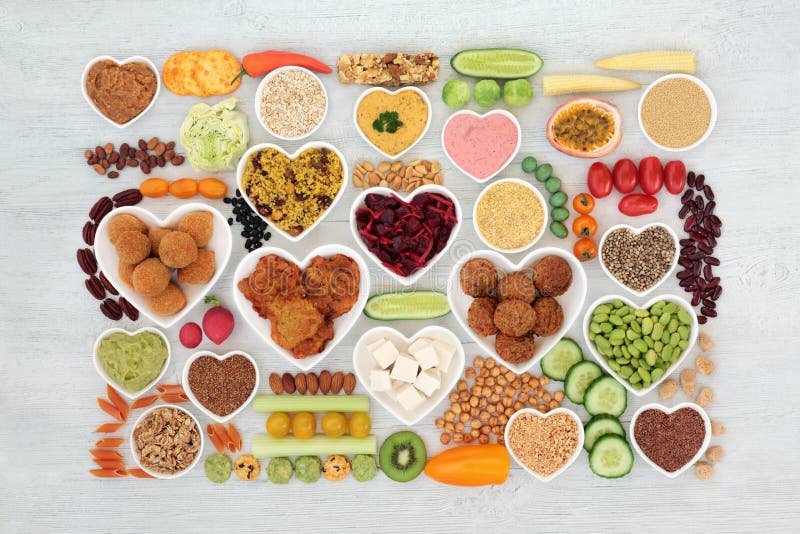

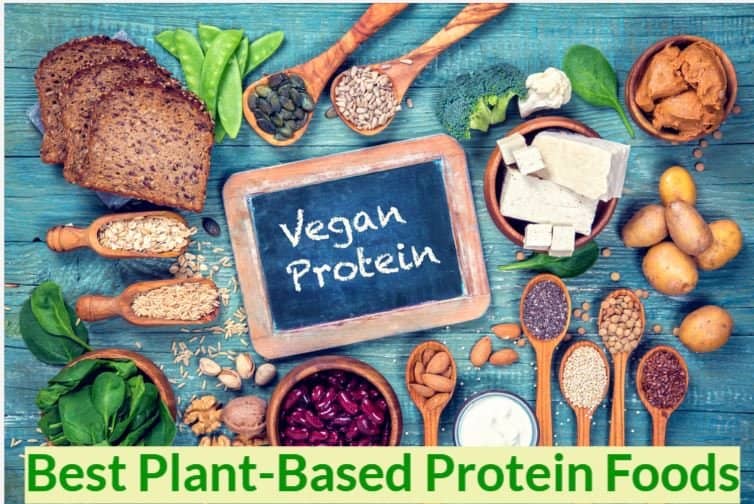
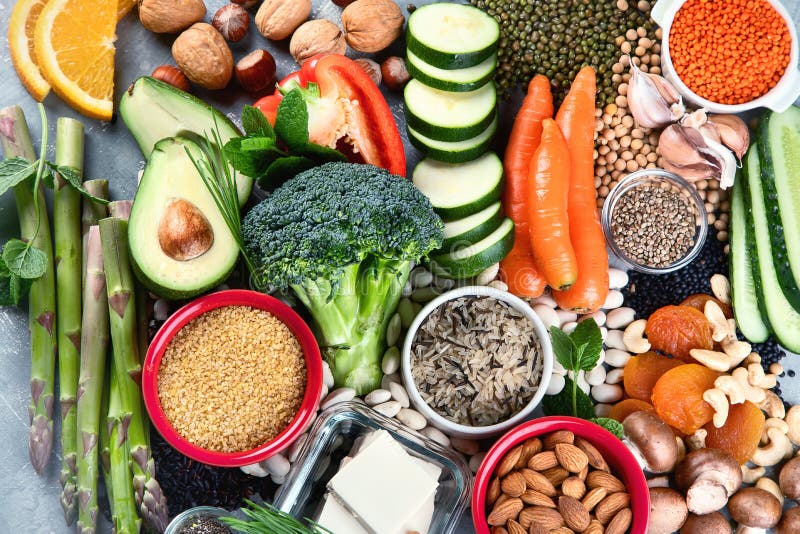

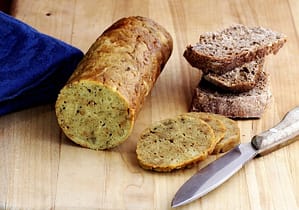
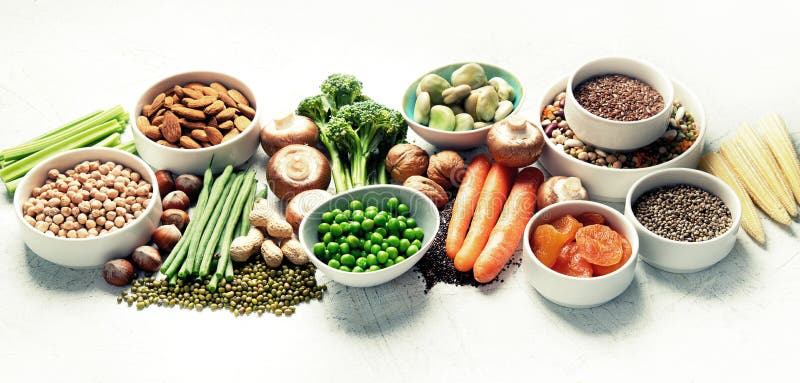



Don't miss out
when new recipes and information are added!
Join our newsletter for free recipes,
healthy living inspiration, and special offers
You have Successfully Subscribed!